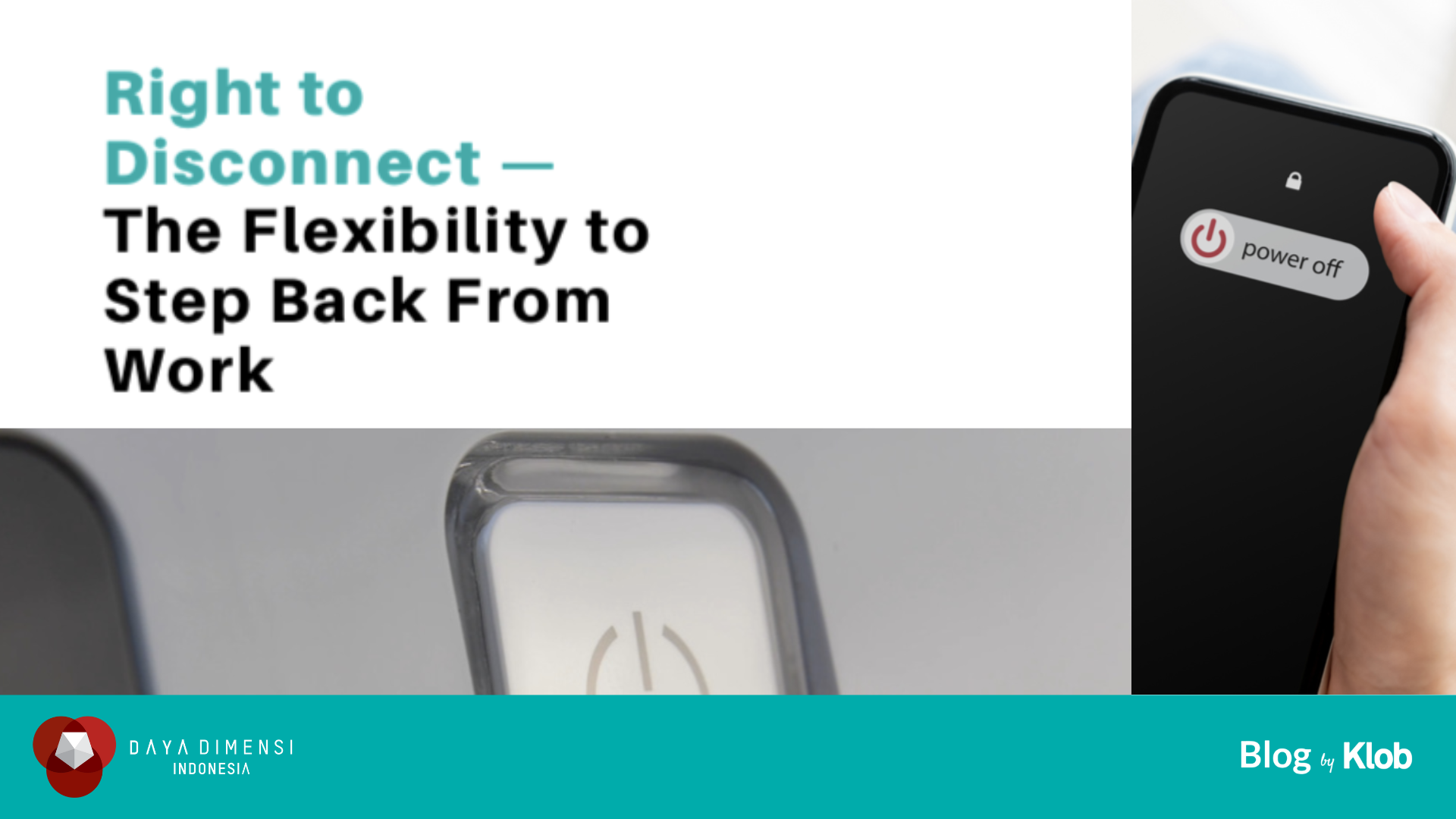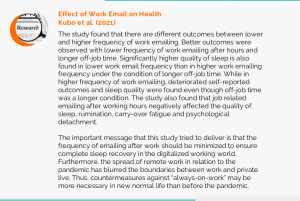
Right to Disconnect: Step Back From Work
Right to Disconnect — The Flexibility to Step Back From Work
Have you ever experienced a situation where you are in the middle of your movie marathon, and you get a notification on your phone from your colleague regarding work? Or have you experienced a time when you are having a nice dinner with your family, and your boss calls you to talk about tomorrow’s meeting? Well, it is good if you have never experienced those situations above. However, not all people are as fortunate as you, even when they have a right to disconnect from work. And so do you. You, too, have a right to disconnect from your work.
–
The right to disconnect was first initiated by the Labor Chamber of the French Supreme Court back in 2001, stating that no employees were obligated to work when they were at home or bring their work back home. The court then affirmed this ruling in 2004, where they found that it cannot be considered misconduct if employees are not reachable by their employers through their handphones outside working hours.
Thus, from these rulings, we could conclude that the right to disconnect includes the right of an employee to not work outside their regular working hours, the right not to be punished when they refuse to work outside their regular working hours, the right to reject any form of communication regarding work outside their regular working hours, and the duty to respect others’ right to disconnect.
As seen in the previous paragraph, it is inferred that the idea of the right to disconnect has emerged since years ago. However, it has now once again become a hot topic because of working from home (WFH). WFH was once regarded as a perk for some people but has now become a norm for millions of employees due to the COVID-19 pandemic. Since they are working from home, employees tend to struggle to balance work and personal time. Additionally, WFH has transformed some of employers’ way of thinking as they expect their employees to stand by and be ready for 24/7.
–
According to Von Bergen & Bressler (2019), these type of phenomena greatly affects employee privacy and autonomy, employee morale, safety and health, productivity, compensation, rest and leisure, and work-family conflict. It is also essential to note that the pandemic has impacted the employees’ wellbeing and increased the threat to their mental health, as they are now more prone to experience burnout. CNN Indonesia’s poll discovered that about 77.3% of employees admit that they have experienced burnout while working at home.
Many countries are now looking for ways to legalize laws that allow employees to step back from their work without being punished. Study by Secunda (2018) found that there are two paradigms in addressing employee’s right to disconnect from work. The first one, referred to as the “French Legislative Model”, attempts to regulate after hours’ electronic communication between employer and employee through statutes and lawmaking. So far, the countries that have tried or implemented the right to disconnect legislation are several countries in Europe, such as France in 2016, Italy in 2017, Spain in 2018, and Belgium in 2022.
Aside from these European countries, other countries like Ireland and the U.K. have tried to introduce a code centered around the work-from-home era or to start implementing the right to disconnect legislation. Besides legalizing laws, some other countries are also trying to respect their citizens’ right to disconnect by doing other means. This second paradigm, referred to as the “Germany Self-Regularity Model”, involves voluntary self-determination in which private firms adopt policies that fit their individual or industrial needs. For example, Germany has negotiated among company stakeholders to protect their employees’ ability to log off.
–
Unfortunately, in reality, it is tough to integrate the ability to log off with the freedom to work remotely because most existing initiatives are more focused on a structured workday period that does not reflect today’s work environment. A study by experts at the University of Sussex on 2020 discovered that banning employees from accessing their work email could be detrimental to employees with high levels of anxiety or who need more flexibility which could end up causing more stress to them instead of helping them.
Some other experts have also warned that mismanagement of these initiatives could compromise employees’ flexibility in organizing their work. Globally, many employees have asked for more flexibility to define their working hours and not be dictated on when they can access their work email and such.
–
When organizations implement policies that allow employees the freedom to choose for themselves when and how to disconnect, the wellbeing and performance benefits of disconnecting are maximized. Spiegelaere et al. (2016) found that employees that are able to freely organize their workday and schedule their tasks to have higher levels of work engagement and innovative work behavior. In a similar manner, a study by Muecke & Iseke (2019) indicated that enabling employees to make their own decisions and organize how they perform their assignments on their own would reduce mental strain, increase work motivation, and improve job performance.
Nevertheless, employers and employees need to be aware that different jobs have different levels and structures of autonomy they support. Issues such as the nature of the work, coordination requirements, dealing with deadlines, work standards, and employee tenure should all be considered when granting employees with autonomy. But the general principle is still to provide as much autonomy as a job will allow and support employees in their exercise of it. Additionally, work groups should have the opportunity to establish the parameters of autonomy by themselves and revisit this issue regularly. (OCY)

Read the last article by Daya Dimensi Indonesia here.




